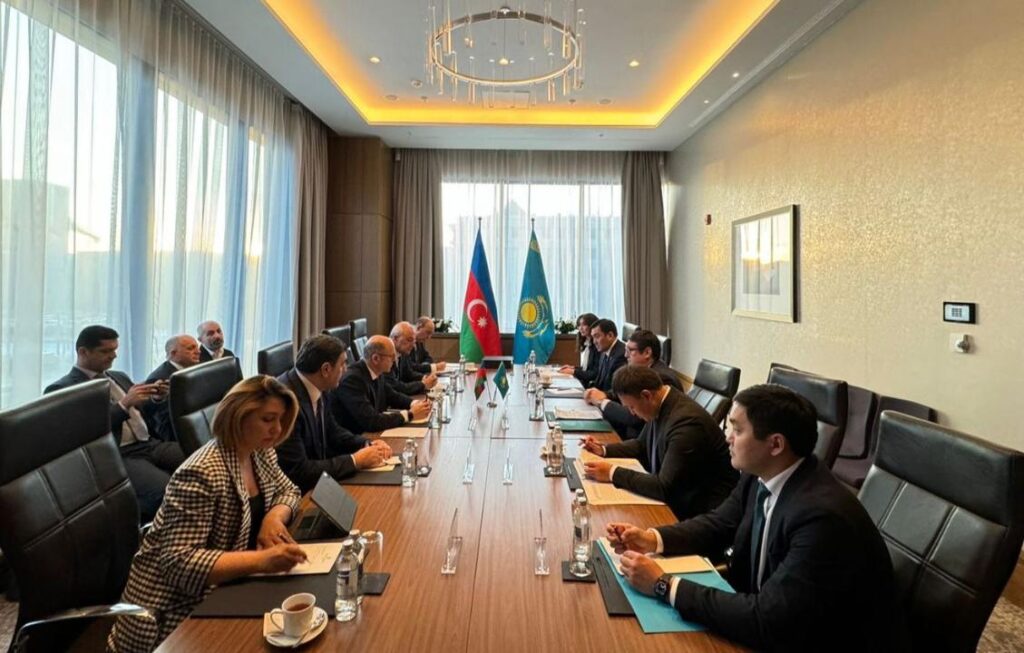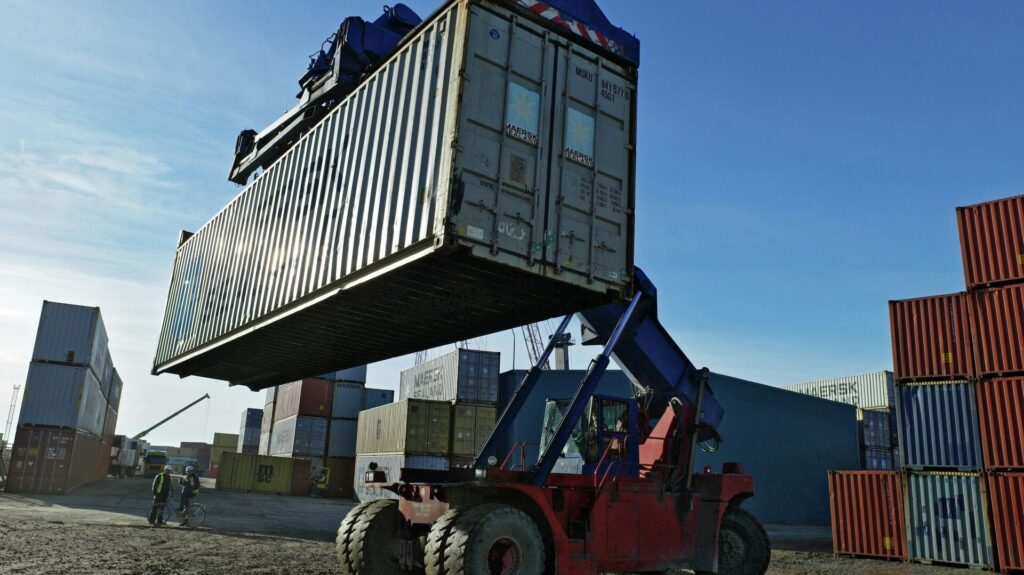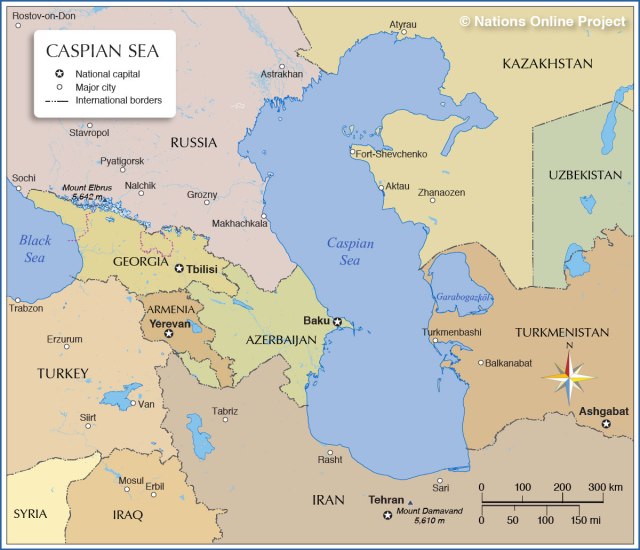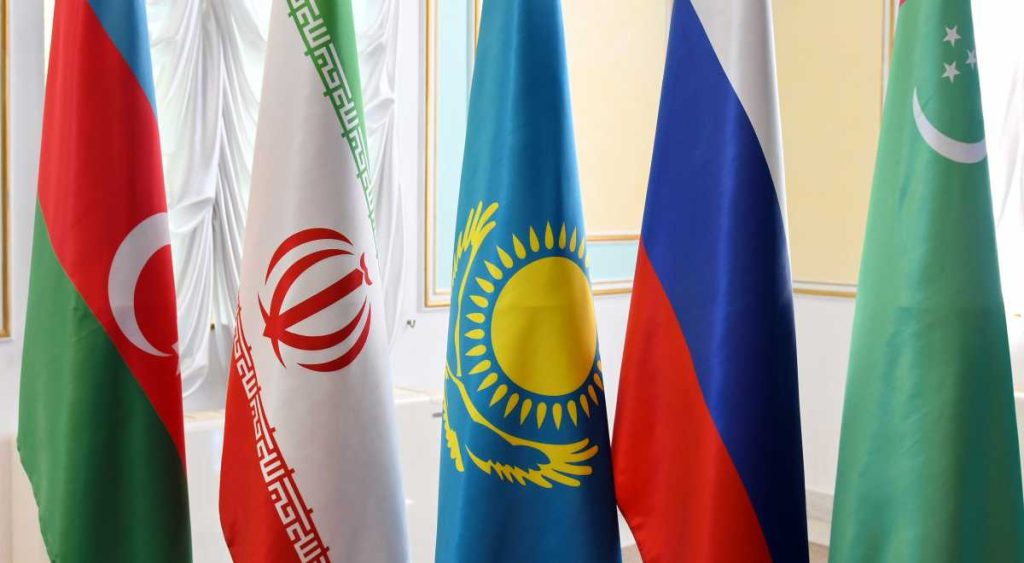Viewing results 1 - 6 of 38
With the production of crude oil set to rise in Kazakhstan, the country plans to increase shipments across the Caspian Sea and through Azerbaijan. On March 6th, Kazakhstan’s Minister of Energy Almasadam Satkaliev met his Azerbaijan counterpart, Parviz Shahbazov, to discuss cooperation between their countries regarding the transit of Kazakh oil and the implementation of large-scale renewable energy projects. Back in 2022, Kazakhstan’s President Kassym-Jomart Tokayev ordered an increase in the volume of oil transported across the Caspian Sea. In response, Kazakhstan’s national oil and gas company KazMunayGas and the state oil company of Azerbaijan, SOCAR, entered into an agreement to transport up to 1.5 million tons of oil per year from Kazakhstan’s Aktau port through the Baku-Tbilisi-Ceyhan oil pipeline. In 2023 Kazakhstan’s shipment of crude oil from the Caspian port of Aktau grew to almost 1.4 million tons and this year, is expected to rise to 1.5 million tons. Major expansion projects are currently underway at Kazakhstan’s Tengiz, Karachaganak, and Kashagan oil fields to increase the future output of crude oil. Today, most of the country’s oil is exported via the pipeline managed by the Caspian Pipeline Consortium (CPC) which runs to the Russian Black Sea port of Novorossiysk. The throughput capacity of the Kazakh section of the Caspian Pipeline Consortium (CPC) pipeline has increased from 54 million to 72.5 million tons per year. The Kazakh and Azeri energy ministers also discussed a forthcoming project to connect the Caucasus region and Central Asia’s energy systems through the installation of a deep-sea cable in the Caspian Sea.
Trade turnover between Tajikistan and Azerbaijan increased by more than 26% in the first ten months of this year, amounted to more than $ 5 million, the customs authorities of Azerbaijan reported, adding that $4.6 million of this is accounted for by exports to Tajikistan. It was recently reported that Tajikistan and Azerbaijan have signed a number of cooperation agreements, particularly in investments aimed at improving the industrial sector. Among the key areas are projects for the launch of an oil refinery in the Dangara SEZ, the construction of a hydroelectric power plant in Tajikistan, and an increase in TALCO's production capacity. In addition, Baku is promoting an initiative to provide Dushanbe with discounts on rail transport.
BISHKEK (TCA) — With the signing of the Convention on the legal status of the Caspian Sea, Turkmenistan now has an opportunity to diversify its natural gas exports to Europe through the proposed Trans-Caspian Gas Pipeline project. We are republishing this article on the issue, written by Ilgar Gurbanov*: Continue reading
BISHKEK (TCA) — Even after the signing of the Caspian Sea’s Legal Status Convention, prospects of Turkmenistan being someday able to export its natural gas via the proposed Trans-Caspian gas pipeline remain vague and problematic. We are republishing this article on the issue, written by Ilgar Gurbanov, originally published by The Jamestown Foundation’s Eurasia Daily Monitor: Continue reading
AKTAU, Kazakhstan (TCA) — At their summit in the Kazakh port city of Aktau on August 12, the presidents of Azerbaijan, Iran, Kazakhstan, Russia, and Turkmenistan signed the Convention on the legal status of the Caspian Sea, after more than two decades of discussions. Continue reading
BISHKEK (TCA) — A convention on the legal status of the Caspian Sea, expected to be signed this Sunday, would pave way to implementation of the Trans-Caspian gas pipeline — a project that will diversify gas-export routes for Turkmenistan. We are republishing this article on the issue, written by Peter Leonard, originally published by Eurasianet: Continue reading






